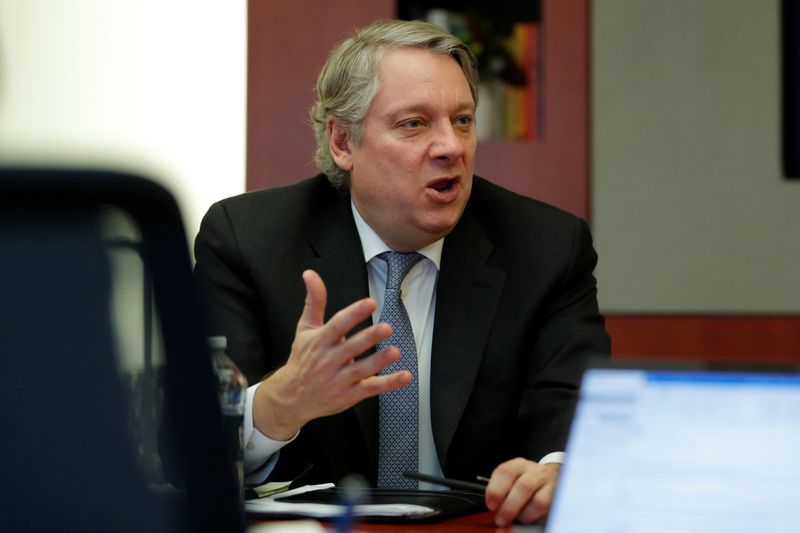This post was originally published on this site
https://i-invdn-com.akamaized.net/trkd-images/LYNXMPEGAB0C3_L.jpg
NEW YORK (Reuters) – Positive data on an experimental COVID-19 vaccine has improved the outlook for high-yield credit, especially for companies slammed by the coronavirus pandemic, said Dan Ivascyn, chief investment officer at bond giant Pacific Investment Management Co (PIMCO).
Ivascyn also told Reuters in an interview that prospects for a split U.S. Congress after last week’s election has dampened stimulus prospects, making it more likely Treasury yields will remain range-bound despite a recent rally.
While rising coronavirus cases should make for a “bumpy next several weeks or months, help is on the way,” Ivascyn said, referring to developments like Pfizer ‘s (N:PFE) announcement Monday that initial trial results indicated its vaccine was more than 90% effective.
“If you look through this period of uncertainty, you get to a place where we think risk assets can perform reasonably well.”
Airlines, hospitality, travel and gaming are among sectors Ivascyn said he finds attractive, particularly if there is progress early next year on containing the virus.
Two days after the vaccine announcement, spreads of the riskiest U.S. corporate bonds over Treasuries on Wednesday remained near their narrowest since February. (MERH0A0)
Ivascyn noted that companies in pandemic-hit sectors have had to offer investors attractive collateral packages and covenants on bonds in order to raise new debt.
While a vaccine is good news for corporate credit, the confidence it could spark in the U.S. economy lowers the chances of lawmakers passing a large stimulus package. And without a significant increase in new debt offered by the U.S. Treasury, “we’re a little bit more constructive on rates remaining range-bound,” Ivascyn said.
Ivascyn expects inflation to remain subdued without a flood of new Treasury supply. Longer-dated Treasury bonds are particularly sensitive to inflation expectations and therefore likely to remain anchored in that scenario, producing a flatter yield curve.
Pfizer’s announcement sent the benchmark 10-year yield (US10YT=RR) to its highest since March, edging close to 1%. The yield curve steepened sharply.
Vaccine progress, however, will not significantly affect Federal Reserve policy plans, said Ivascyn, who expects interest rates to be held near zero for several years, accompanied by quantitative easing.

